Trump and Biden to face off in 1st 2020 presidential debate
The first debate between Trump and Biden comes five weeks before Election Day.
President Donald Trump and Democratic nominee Joe Biden prepared to face off Tuesday -- at a social distance -- in their first in-person showdown of the 2020 presidential campaign.
As they did so, each grappled with how to tackle 11th hour bombshell developments involving a report about Trump's taxes and a Supreme Court confirmation fight.
While Biden hunkered down in Delaware on Monday, Trump, at an event touting production of an electric pickup truck in Ohio -- where the debate will take place -- when asked whether he was looking forward to the matchup, responded, "Yeah, I am," with a grin. "I am looking very forward to the debate."
But he walked away when reporters asked about a New York Times account about his tax returns showing he paid no or little federal income tax over the past 18 years.
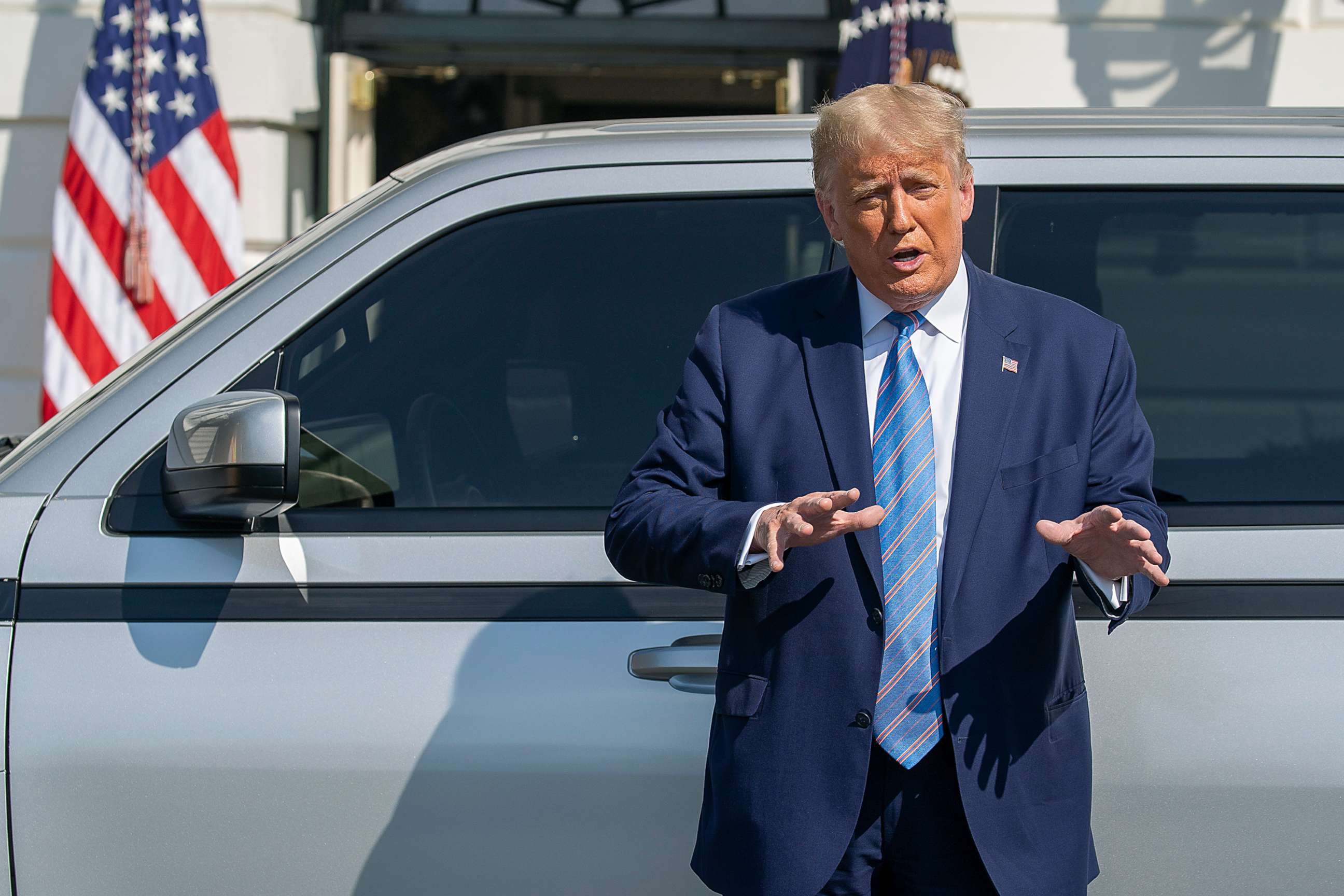
The first debate, at Case Western Reserve University, comes as the latest ABC News/Washington Post poll shows Biden maintains a 10-point edge among both registered and likely voters.
The debate will air commercial-free from 9 to 10:30 p.m. ET on ABC and stream on ABC News Live. Pre-show coverage will begin on ABC News Live at 7 p.m. and on the network at 8 p.m. Following the debate, there will be additional analysis on ABC and ABC News Live.
The coronavirus pandemic's impact will be evident as the two candidates won't partake in the customary opening handshake.
The size of the audience also will be limited and everyone attending the debate must undergo COVID-19 testing and follow other public health protocols.
While the year began with a presidential impeachment and a competitive Democratic primary, the country has since experienced an ongoing pandemic, an economic collapse, national reckonings around race and a Supreme Court vacancy.
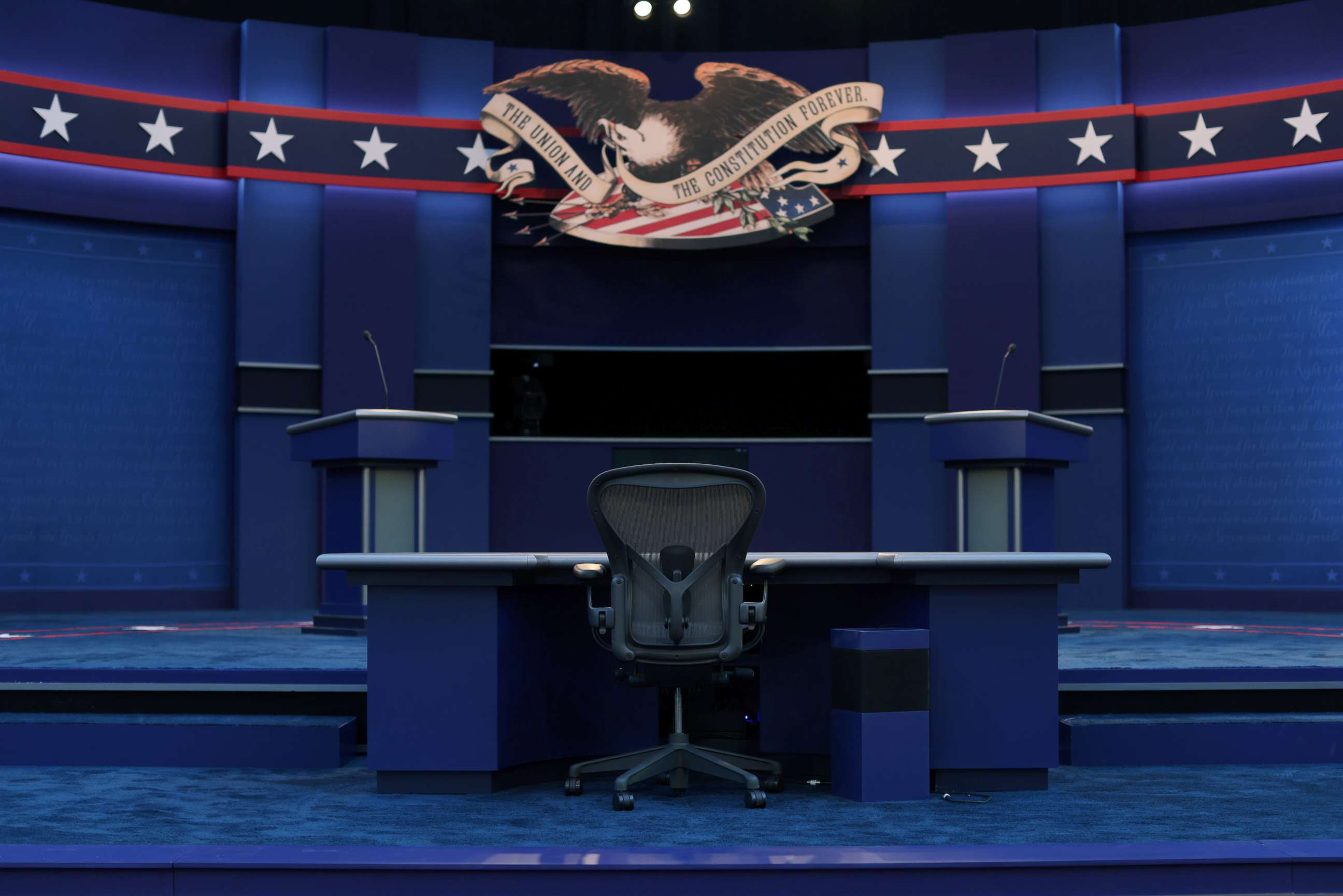
The debate moderator, "Fox News Sunday" anchor Chris Wallace, selected the topics, with each segment getting approximately 15 minutes: Trump's and Biden's records; the Supreme Court; COVID-19; the economy; race and violence in U.S. cities; and the integrity of the election.
Asked how Trump was preparing, White House press secretary Kayleigh McEnany on Monday said he went through "a number of topics during preparation [Sunday]." Trump said his personal attorney Rudy Giuliani and former New Jersey Gov. Chris Christie helped him with debate preparations Sunday before he held a news conference, the ultimate way to prepare, according to the White House. (Christie is an ABC News contributor.)
"As he (Trump) has said vocally and publicly, his debate prep happens each and every day when he's at the podium taking questions -- vicious questions at that -- unfair questions from a media that's very biased. When he goes to the plane and he gaggles on the way there and on the way back, he takes more questions than any president in history. He's very transparent unlike Joe Biden who really has been hiding away," McEnany told Fox News.
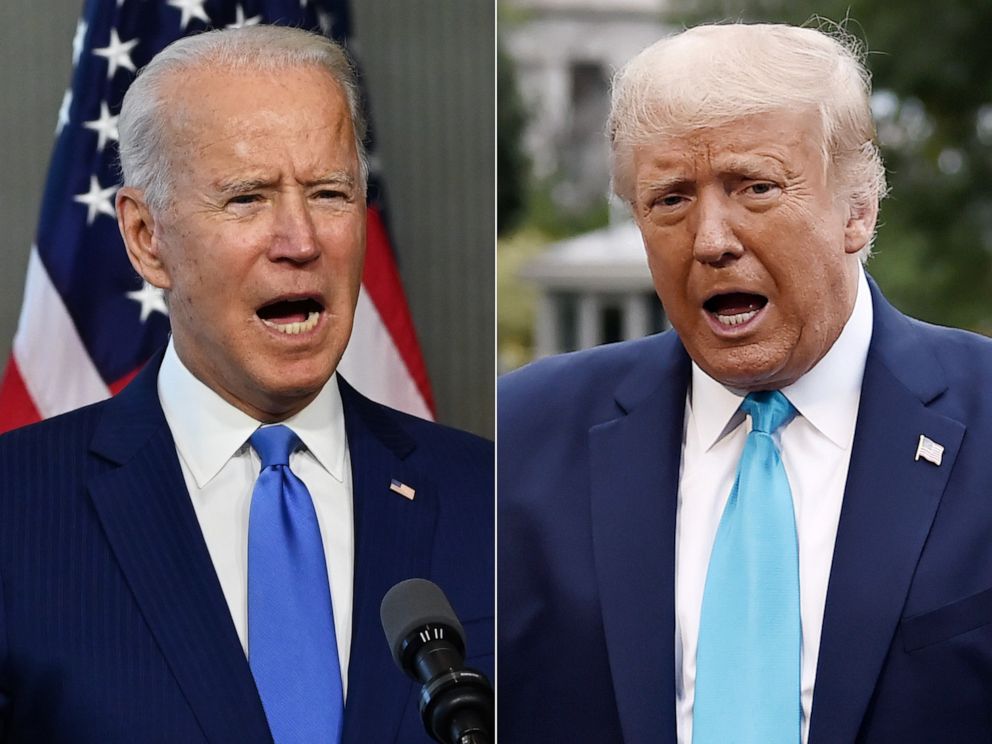
Over the last few weeks, the president has resisted traditional debate preparations, as he did during the 2016 campaign. This time around, sources said, debate meetings have taken place both at the White House and the president's weekend retreat in Bedminster, New Jersey, with sessions including Christie, Trump campaign manager Bill Stepien, Jason Miller and Jared Kushner and other top aides.
The sessions have included conversations about potential debate topics or issues on the president's mind but included few, if any, extensive mock debates, according to sources.
Trump, sources said, is eager to go after Biden's son, Hunter Biden, and his business dealings in Ukraine while his father was vice president and in charge of anti-corruption efforts involving Ukraine. Hunter Biden has denied wrongdoing and faces no charges.
Biden's debate preparations are being overseen by Democratic debate guru and Biden's former chief of staff, Ron Klain, according to sources. His preparations have included mock debate sessions with Bob Bauer, a senior Biden adviser and former White House general counsel, playing the role of Trump, according to a source familiar with the process.
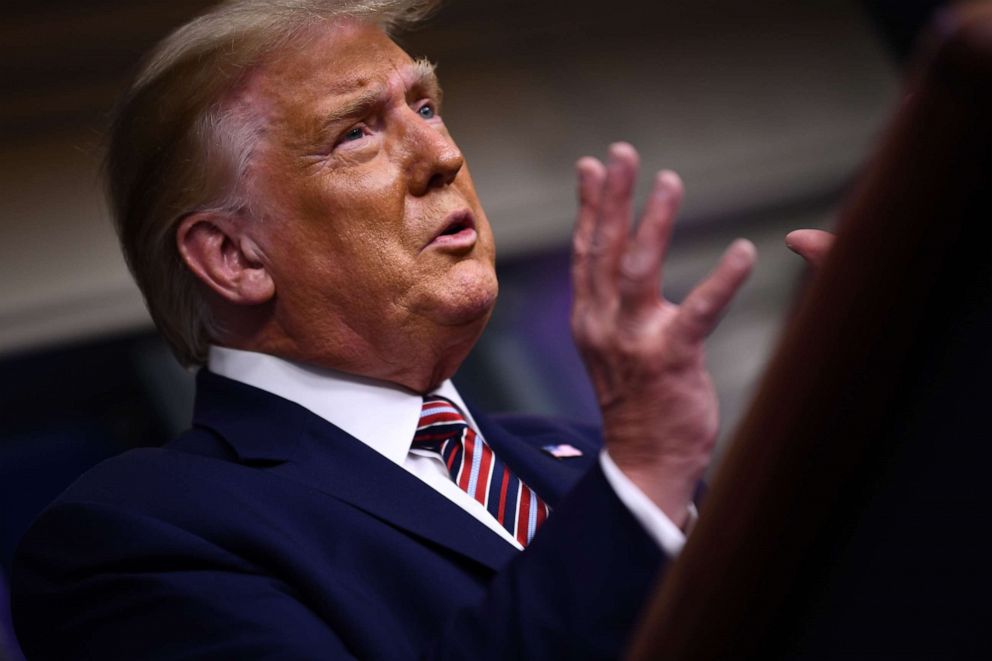
"It is going to be difficult. I know -- I mean my guess it's going to be just straight attacks. They're gonna be mostly personal. That's the only thing he knows how to do. He doesn't know how to debate the facts because he's not that smart. He doesn't know that many facts," Biden said Saturday on MSNBC when asked about his strategy.
"I'm prepared to go out and make my case as to why I think he's failed and why I think the answers I have to proceed will help the American people, the American economy and make us safer internationally," he added.
With the Supreme Court slated to hear arguments on the fate of the Affordable Care Act on Nov. 10 -- one week after Election Day -- Biden can be expected to highlight how health care for millions of Americans could hang in the balance, even as Democrats concede there's little Democrats can do to stop Trump's high court nominee who they warn could vote to scuttle the law.
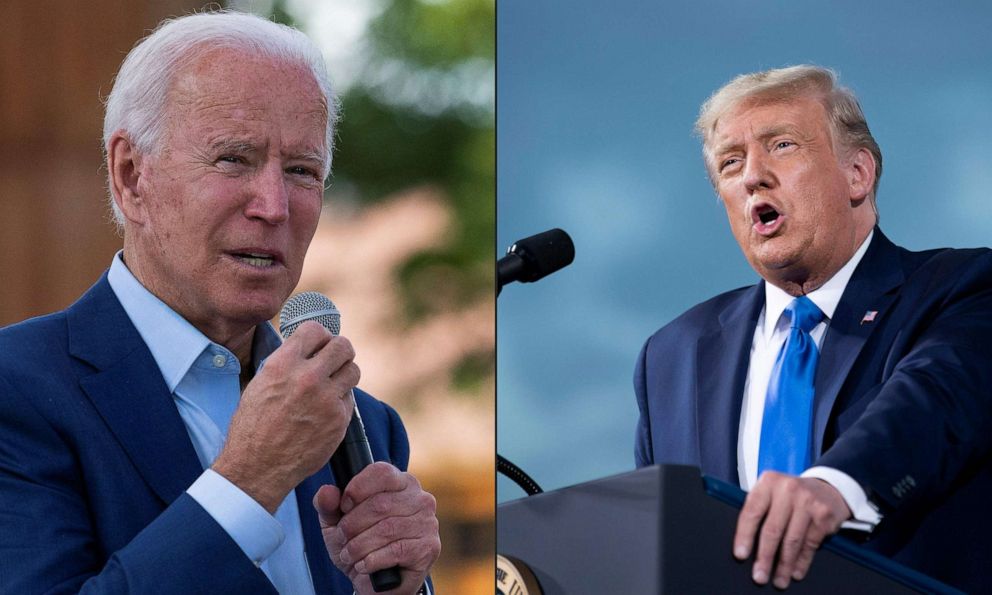
Trump has continued to suggest Biden is taking performance-enhancing drugs, calling on him to take a test either before or after the debate, claiming he would take one as well. Trump made the same baseless claim against then-Democratic nominee Hillary Clinton following their first debate in 2016, calling for a drug test before the next one. No drug tests were taken, and he went on to participate in all three debates.
"Joe Biden just announced that he will not agree to a Drug Test. Gee, I wonder why?" Trump tweeted Monday.
Biden's deputy campaign manager Kate Bedingfield soundly rejected the accusation.
At the same time, Trump's team has played up Biden as a career politician who has debated dozens of times while noting Trump's first experience debating was when he first ran for president last cycle.
Viewers may anticipate Wallace and debate moderators to fact check the candidates in real time, but the Commission on Presidential Debates (CPD) attempted to manage those expectations over the weekend.
"There's a vast difference between being a moderator in a debate and being a reporter who is interviewing someone," CPD co-chair Frank J. Fahrenkopf Jr. said Sunday on CNN. "We don't expect Chris or our other moderators to be fact checkers. The minute the TV is off, there are going to be plenty of fact checkers in every newspaper and every television station in the world. That's not the role, the main role, of our moderators."
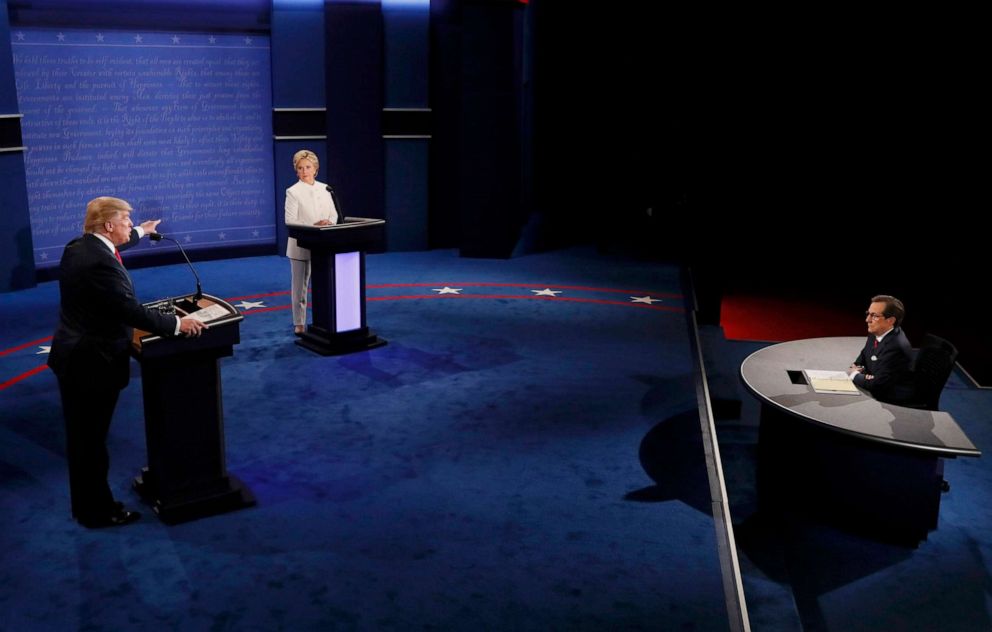
Wallace -- who moderated the third and final 2016 debate between Trump and Clinton -- also said Sunday on Fox News that his job as a moderator is "to be as invisible as possible."
"I'm trying to get them to engage, to focus on the key issues, to give people at home a sense of, 'why I want to vote for one versus the other,'" Wallace said.
While the debate falls exactly five weeks before Election Day, millions of Americans are already voting.
State election officials in Arizona, Florida and Wisconsin have issued millions of absentee or mail ballots, and early voting has started in a handful of states including Minnesota, North Carolina and Virginia.
ABC News' Jordyn Phelps, Katherine Faulders, John Santucci and Will Steakin contributed to this report.




